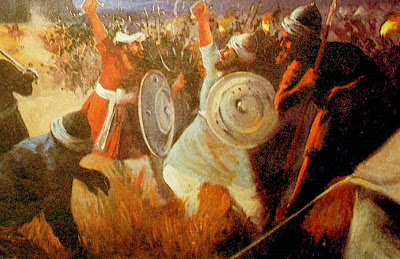BELA SINGH, BHAI (1865-1921), son of Bhai Mayya and Mai Raji, a Saini Sikh couple, was born at Kartarpur in Jalandhar district. The family originally belonged to Faridkot state, from where Bela Singh`s grandfather, Bhai Sobha, had migrated to Kartarpur where he served in Guru ka Larigar run by local mahants, who in recognition of his services had allotted some agricultural land to him. Bela Singh was the first in the family to receive the Khalsa paau. He engaged himself in agriculture but also continued to serve in Guru ka Langar.
family
Explore the deeper meaning of Aarti in Hinduism and Sikhism, where true worship goes beyond rituals and embraces the beauty of nature and truth.
Explore the profound concept of Aatma and its connection to Paramaatma, God, and the transcendental self in Sikh and Hindu philosophies.
Explore the distinctive and largely unknown Sikh architectural style, with its rich history in gurdwaras, forts, and palaces, by S.S. Bhatti.
Discover the captivating history and architecture of Samman Burj, the octagonal Mughal marvel in Lahore Fort, known for its royal and administrative legacy.
Explore the profound concept of Aatma and its connection to Paramaatma, God, and the transcendental self in Sikh and Hindu philosophies.
Explore the deeper meaning of Aarti in Hinduism and Sikhism, where true worship goes beyond rituals and embraces the beauty of nature and truth.
Explore the profound concept of Aatma and its connection to Paramaatma, God, and the transcendental self in Sikh and Hindu philosophies.
Explore the deeper meaning of Aarti in Hinduism and Sikhism, where true worship goes beyond rituals and embraces the beauty of nature and truth.





